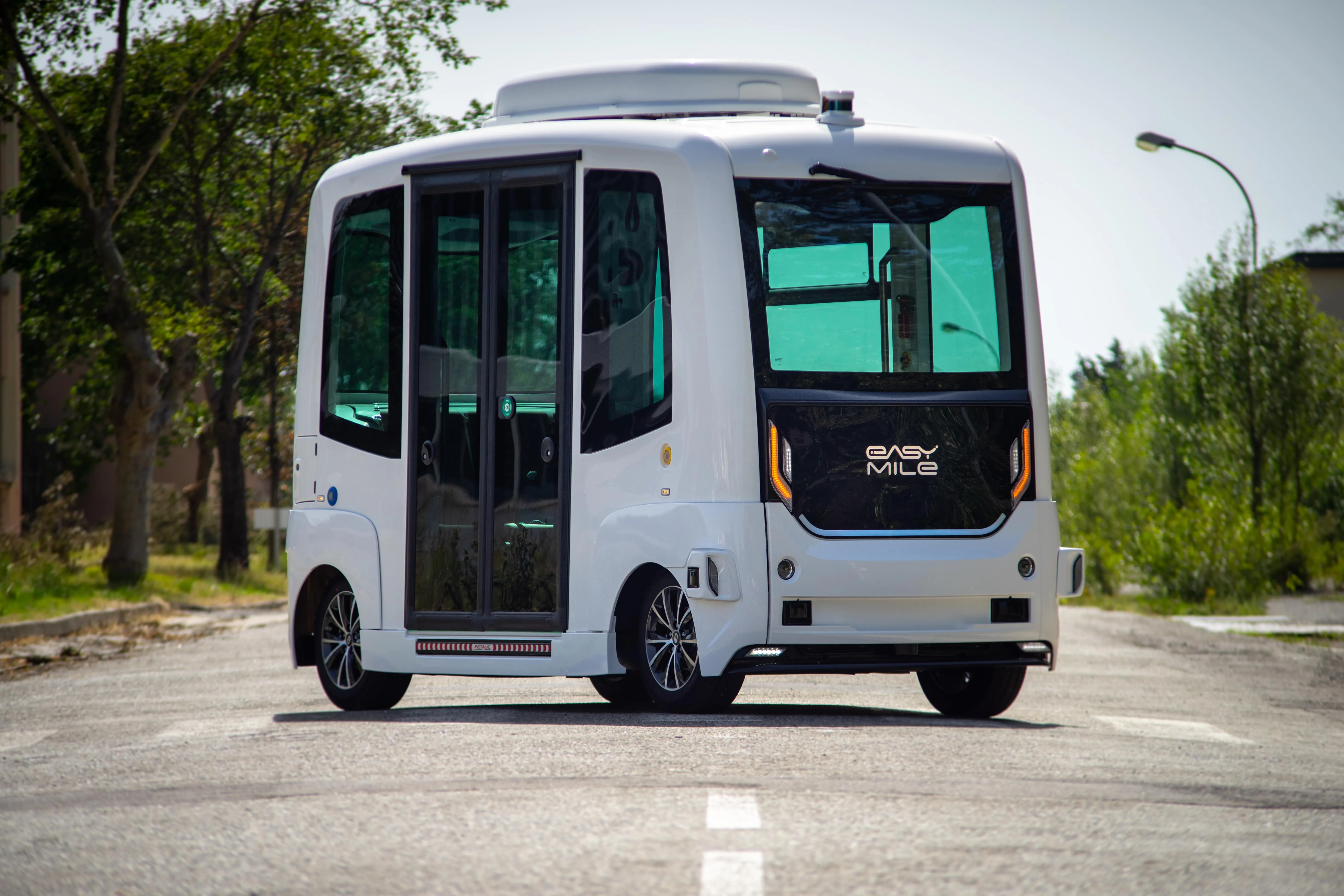
EasyMile is equipping its EZ10 shuttle with solar panels provided by Sono Motors as part of a new energy concept for electric and autonomous shuttles.
The solar technology modifies a vehicle's exterior by installing solar cells integrated into flexible polymers instead of glass.
EasyMile says its EZ10 shuttle operates up to 16 hours with one battery charge and must be plugged-in for around six hours to be fully re-charged from empty. This could be shortened with the new solar technology, the company adds.
According to EasyMile, the solar cells convert sunlight into energy that is stored in the vehicle's battery, and can increase the range of the EV.
The company insists this could give the shuttle even more autonomy as it would be more independent of the available EV charging infrastructure.
EasyMile recognises that while the solar body panels are not designed to replace traditional charging methods, they can reduce the number of charging intervals.
Earlier this month, Sono Motors announced plans to licence its solar technology to other companies at the virtual Consumer Electronics Show 2021.
Solar energy is also being used to support EV charging. Last month, the city of Peachtree Corners in Georgia has unveiled a roadway system which produces energy for a solar-powered EV charging station at city hall.










